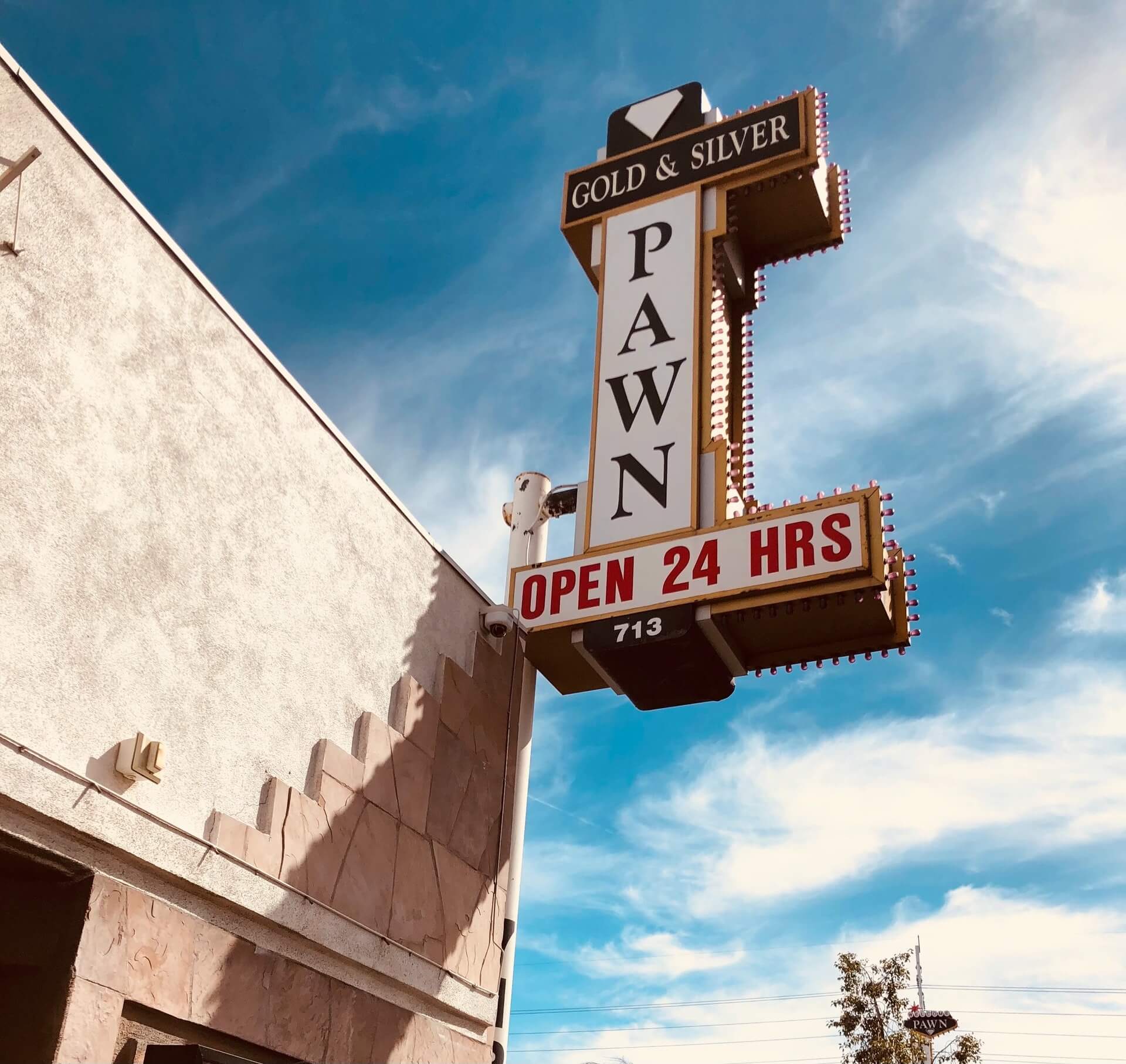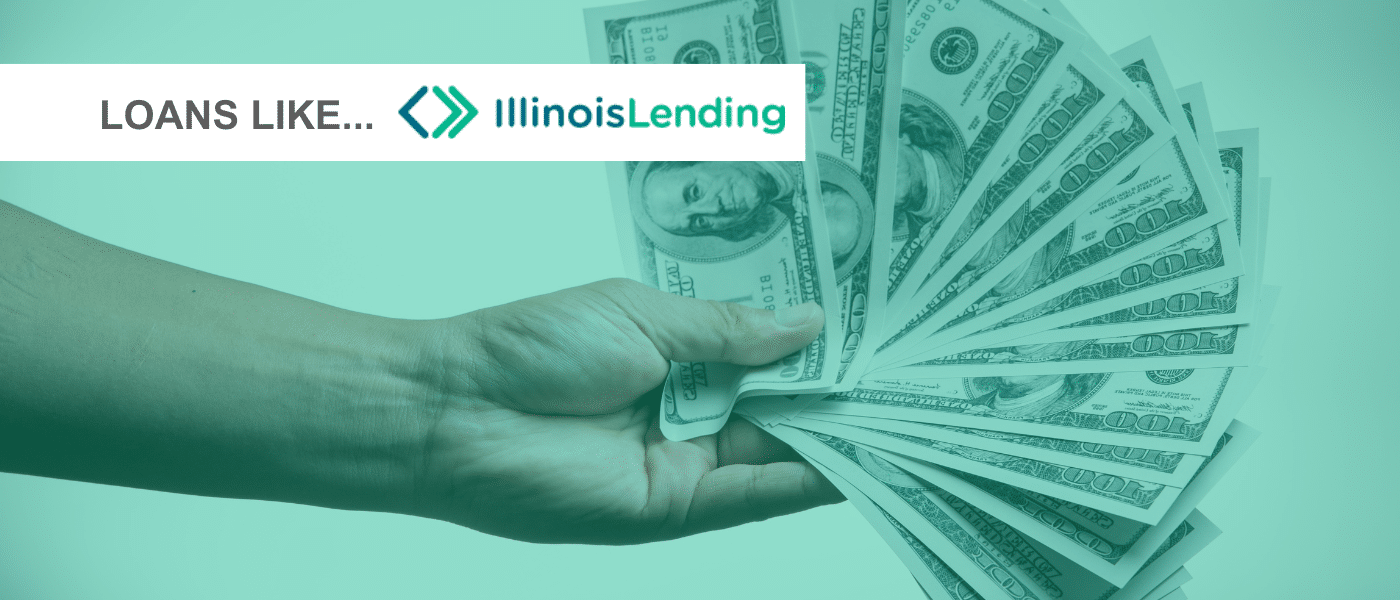What does pawning something mean? When someone pawns something, they are taking out a loan using one of their possessions as collateral. The pawn shop owner will provide funding and hold onto the collateral until the original owner has paid back their cash advance in full plus interest rate fees. Once their advance has been paid off, the original owner can get their item back. However, if they fail to repay, the pawn shop owner has the right to sell the collateral. It’s estimated that over 30 million Americans utilize pawn shops and pawn shop loans every year!1
For our purposes, pawning something is a part of the financial industry. People can usually always go to a pawn shop and pawn something to get more money. If you think, “I need 100 dollars now“, you may be considering pawning an item you own. A person’s purposes for wanting to pawn something may be to:
- Cover a deposit
- Catch up on bills
- Payback another loan
- Have some extra cash
Check out the information below to learn about how pawn shops work and if they’re worth it!
What Happens When You Pawn Something?
The act of pawning in the financial industry refers to a person selling a piece of personal property to a pawn shop. A person may pawn almost anything from a watch to a full-size vehicle, as you may have seen on the Pawn Stars television show.
When a person pawns something, they bring a piece of property to a pawn shop for a pawnbroker to evaluate. Pawn shops determine prices based on the item’s condition, age, brand, and market value. When bringing in the item, the seller may request a price at which they’d like to sell their property or wait for the pawnshop owner to give them an estimate. If the item has enough equity, the pawnshop owner will provide the seller with an offer. If the seller accepts, they will give the pawnshop whatever item they choose to give up, and the pawnshop owner will provide them with the agreed-upon monetary amount. After this transaction, the original seller has no legal right to whatever they sold to the pawnshop. It is up to the discretion of the pawnshop owner what happens to the item, or items, next.
What About Buying Goods From a Pawn Shop?
Goods at a pawn shop are typically more affordable than in retail stores. While items may have price tags attached, these prices are usually negotiable. If you find an item you like, carefully examine its condition and functionality as items may be damaged or missing key parts.
The first offer should generally be 20% to 30% below the actual value. It’s important to set a budget beforehand since the seller may counter your initial offer. Using cash at a pawn shop is preferred, so you may have a better chance of securing a lower offer if you pay in cash. The seller may also be unwilling to negotiate, so be prepared to pay full price or walk away.
Understanding Pawn Shop Regulations
A pawn shop is a storefront where a pawnbroker can lend money in exchange for personal property. Pawn shops are regulated by federal, state, and local laws to ensure they operate ethically and legally. Federal regulations include The Patriot Act, Truth in Lending Act, Equal Credit Opportunity Act, Bank Secrecy Act, and Office of Foreign Assets Control (OFAC). State and local regulations require specific licenses and annual renewals and inspections. Non-compliance from pawn shops can result in fines, license revocation, or criminal charges.
What Is a Pawn Loan?
Instead of selling your items forever, many pawn shops also offer pawn loans. A pawn shop loan is when a person gives up possession of something for a brief period of time in exchange for money. Whatever item the borrower pawns stays in possession of the pawnshop while the borrower pays back their loan. Fortunately, pawn shops typically have high security, so borrowers don’t have to worry about their items being lost or stolen. Once the borrower pays back the pawnshop owner, they may get their item back. If the borrower does not pay back the pawnshop owner, they have the right to keep and sell whatever the borrower pawned.
More Information About Pawns
| Aspect | Description |
| Interest Rates | Varies from 2% to 25% per month, depending on state regulations and individual pawn shop policies. |
| Term Length | Usually 30 days, but it can vary. Extensions or renewals may be available at additional costs. |
| Item Appraisal Process | Items are appraised based on their current condition, market value, and the pawn shop’s expertise. |
| Customer Identification | Valid government-issued ID is typically required to pawn an item, ensuring transactions are legitimate. |
| Item Retrieval Process | Items can be retrieved by repaying the principal amount along with any applicable interest and fees. |
| Default Consequences | Failure to repay results in the pawn shop keeping the item, and it may be sold to other customers. |
| Regulations and Licensing | Pawn shops are regulated by federal and state laws, and they must be licensed to operate. |
| Confidentiality | Pawn shops usually ensure customer confidentiality and do not report defaulted loans to credit bureaus. |
| Commonly Rejected Items | Items in poor condition, outdated electronics, or items with limited resale value may be rejected. |
| Negotiation Possibility | Prices and terms are often negotiable, but it depends on the pawn shop’s policies and the item’s value. |
Pros and Cons of Pawn Shop Loans
Consider the pros and cons before you pawn something or agree to a pawn loan. While pawning something can be a quick way to get cash, especially when you have a bad credit score, they come with harsh stakes.
Unfortunately, money borrowed through a pawn shop often comes with many inconveniences. To start, pawn loans may come with extremely high interest rates. These high rates may cause the borrower to pay the pawnshop double the amount of their original credit amount or more! There is also the added stress of losing a potentially loved piece of property if the borrower does not adhere to the strict pawn credit terms and rates.
If you are not willing to risk potentially losing whatever item you gave the pawnshop, you should stay away from pawning altogether. There is a good chance there is a better way for you to find the money you need.
Quick Funding Alternatives To Pawn Shop?
Pawning something is a risky decision. Below are a few funding options that may work better for you instead of pawning a loved possession.
Payday Loans
Instant online payday loans are one bad credit lending option readily available to almost anybody. Similar to car title loans, payday loans also come with brief terms and high rates. Payday loans work best for borrowers looking for small cash amounts and who are able to fully pay back their advances within approximately 14 days or less.
Personal Installment Loans
For borrowers looking for a reasonable payback schedule, larger loan amounts, and more convenient interest rates, an installment loan is perhaps the best option. Installment loans are a type of funding borrowers pay back in fixed monthly payments, making them a convenient option for people looking to keep their finances organized.
Credit Cards or Cash Advances
People may also use a credit card to cover purchases or use their card to take out a cash advance. Credit cards are a revolving line of credit, which means account owners have access to a renewed credit limit every month. But, credit cards are also known for coming with high interest rates. To avoid massive credit card debt, you may not want to use your credit card for larger expenses unless you can pay back the balance quickly.
Clean Up Your Finances
Perhaps you don’t need to take out a pawn shop loan or sell anything at all. You may find that getting your finances organized and learning to budget with irregular income is all you need. Creating a budget and having all your expenses displayed in one place makes it easier to see where your money needs to go and how much you may have left over after everything is paid.
Thankfully, there are plenty of convenient alternatives for people to access money, so they don’t have to pawn anything!
FAQ: Pawning Personal Property
Pawning personal property means temporarily handing over an item of value, such as jewelry or electronics, to a pawn shop as collateral to receive a quick cash advance. The pawnshop holds the item until the advance, along with any interest and fees, is repaid.
Yes, it’s possible to negotiate the credit amount. Pawnbrokers may be willing to discuss the terms, including the total amount and interest rates, to reach an agreement that suits both parties.
Common items include electronics, jewelry, musical instruments, tools, and designer accessories. Different pawn shops might specialize in various categories of items.
If you’re unable to repay the pawn advance, the pawn shop has the right to keep and sell the pawned item to recover the principal amount and any additional charges.
Before pawning an item, consider the total amount offered, interest rates, repayment terms, and the sentimental value of the item. Ensure that you are comfortable with the risk of potentially losing the item if you cannot repay the advance.
CreditNinja’s Thoughts on Pawning
While pawning your personal items may seem like a fast way to get quick cash, it may not always be the best solution. You may end up regretting giving up your belongings, or not be able to pay back your quick cash advance in time and risk the pawn shop owner selling your things. Instead, CreditNinja suggests other borrowing options such as using money from your own savings accounts, using a credit card, or even getting an unsecured personal loan.
Learn more about getting the right kind of financing, handling your budget, and more in the CreditNinja blog dojo!
References:






